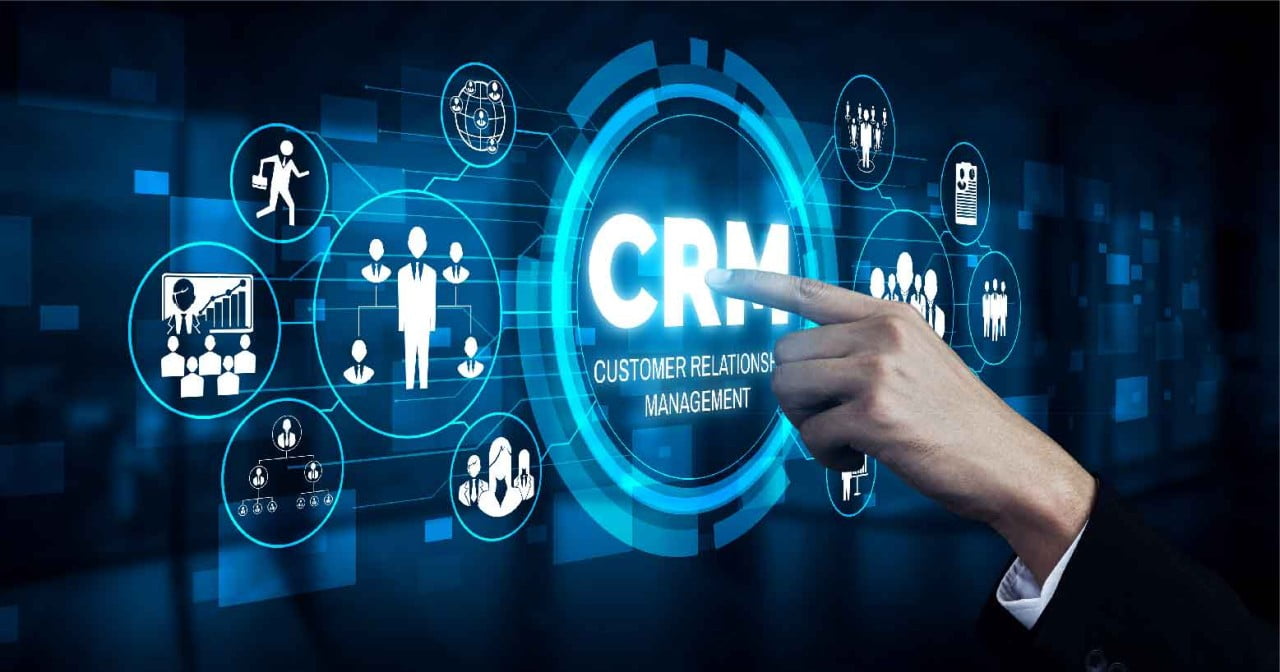Small Business CRM Software: Best Options for 2024 to Drive Growth

In today’s fast-paced business environment, customer relationship management (CRM) software has become a vital tool for small businesses looking to streamline operations, manage customer interactions, and drive growth. As 2024 approaches, finding the best CRM for small business is more critical than ever. Whether you’re managing sales, handling customer support, or running marketing campaigns, the right CRM software can help you keep everything organized while improving efficiency.
This article will provide an in-depth look at the best CRM for small business, focusing on features, benefits, and top options for 2024. Whether you’re a startup or an established small business, you’ll find insights on how CRM solutions can fuel your growth in the coming year.
Why Small Businesses Need CRM Software
The key to success for small businesses lies in their ability to manage customer relationships effectively. A small business often has limited resources, so optimizing those resources becomes crucial to growth and sustainability. This is where CRM software comes into play. The best CRM for small business offers several benefits:
Streamlined Customer Management
CRM software centralizes customer data, making it easy to access and manage information across your team.
Increased Sales and Lead Generation
With tools that track sales pipelines and automate follow-ups, businesses can increase conversion rates.
Better Customer Service
CRMs allow businesses to track customer interactions and solve issues quickly, leading to better satisfaction.
Data-Driven Decisions
The right CRM gives you analytics and reporting tools to monitor performance and make informed decisions.
Scalability
As your business grows, CRM software grows with it, helping you manage more customers and employees with ease.
Key Features of the Best CRM for Small Business
When selecting the best CRM for small business, there are specific features you should look for to ensure that it aligns with your company’s needs. Here are some essential features to consider:
User-Friendly Interface
For small businesses, ease of use is paramount. The CRM should have an intuitive interface that your team can quickly adapt to without the need for extensive training.
Customizable Dashboards
Every business is unique, so having customizable dashboards that let you tailor the CRM to your workflow is important. The best CRM for small business will offer flexibility in organizing customer data, tracking tasks, and managing leads.
Automation Tools
Small businesses often juggle multiple responsibilities, so automation tools like automated follow-up emails, task reminders, and lead scoring are invaluable in saving time and reducing manual work.
Integration Capabilities
The best CRM for small business should integrate seamlessly with other tools your company is using, such as email platforms, accounting software, marketing automation tools, and social media channels.
Mobile Access
In today’s mobile-driven world, the ability to access CRM on the go is essential. A robust mobile app ensures that your team can stay productive, even outside the office.
Affordability
Since small businesses often operate on tight budgets, the best CRM for small business will offer pricing plans that are both affordable and scalable as the business grows.
Customer Support
Having access to excellent customer support ensures that any issues can be resolved quickly, minimizing downtime and helping your team get the most out of the CRM.
Best CRM for Small Business
To help you choose the best CRM for small business in 2024, we’ve compiled a list of top-rated options. These CRMs are designed to meet the needs of small businesses and come with various features that can drive growth and efficiency.
HubSpot CRM
HubSpot CRM remains one of the most popular choices for small businesses, and for good reason. It’s free to start, easy to use, and highly scalable. With a range of tools for sales, marketing, and customer service, HubSpot helps businesses streamline processes without breaking the bank.
Zoho CRM
Zoho CRM is another powerful option, known for its customizability and wide range of features. It offers tools for managing customer data, automating workflows, and analyzing performance. Zoho’s integration capabilities and affordable pricing make it a great option for small businesses looking for flexibility.
Salesforce Essentials
Salesforce is a leading name in CRM, and Salesforce Essentials is tailored specifically for small businesses. It offers a streamlined version of the Salesforce platform, providing all the essential tools for managing customer relationships, tracking sales, and improving productivity.
Pipedrive
Pipedrive is a sales-focused CRM designed to help small businesses improve their sales pipelines. Its visual sales funnel allows users to easily track leads, monitor deal progress, and stay on top of important tasks. Pipedrive also offers a variety of automation tools to simplify repetitive tasks.
Fresh sales
Freshsales, part of the Freshworks suite, is a CRM designed with simplicity and affordability in mind. It offers small businesses the tools they need to track leads, manage contacts, and automate their sales process. Its AI-powered lead scoring helps prioritize the most promising prospects, improving efficiency.
Monday.com CRM
Monday.com, known for its project management tools, now offers a powerful CRM system for small businesses. It’s highly customizable, allowing businesses to create a CRM that fits their unique needs. With visual dashboards and an intuitive interface, Monday.com is great for teams looking to streamline their sales and marketing efforts.
How to Choose the Best CRM for Small Business

Selecting the best CRM for small business requires understanding your business’s specific needs. Here are a few steps to help guide your decision:
Identify Your Goals
What do you want to achieve with your CRM? Whether it’s improving customer support, increasing sales, or automating marketing, clearly defining your goals will help you choose the right solution.
Consider Your Budget
While some CRMs are free or low-cost, others can be quite expensive. Determine what features you need and whether they fit within your budget. It’s also important to look for scalable solutions that can grow with your business.
Assess Integration Needs
If your business relies on other software tools, make sure the CRM you choose integrates with them. This ensures a seamless experience and eliminates the need for manual data entry.
Test the CRM
Many CRM providers offer free trials. Use these trials to test the software and see if it’s a good fit for your team. Consider the ease of use, the available features, and how it aligns with your business processes.
Conclusion
The right CRM software can transform the way your small business operates by improving efficiency, enhancing customer relationships, and driving growth. With many options available, finding the best CRM for small business in 2024 requires careful consideration of your needs, budget, and long-term goals. Whether you choose HubSpot CRM for its affordability, Zoho CRM for its customizability, or Salesforce Essentials for its comprehensive tools, investing in a CRM system is a step towards a more organized and successful future.




